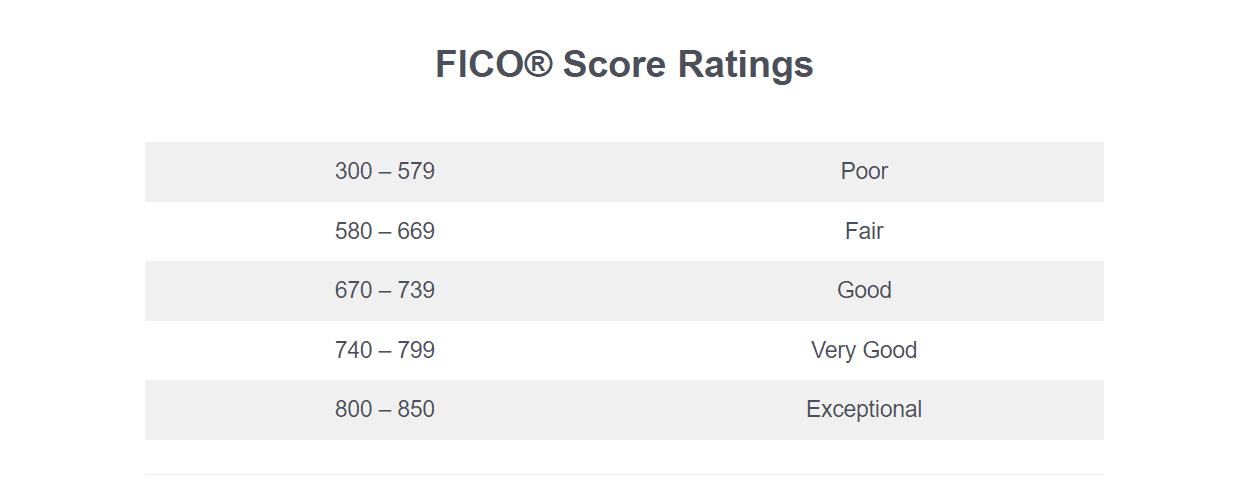Jul 18, 2024

/ Business Loans, Finance, Small Business, Uncategorized / By Olumide Olatunji
Your credit score – that three-digit number – is an important measure of your financial health. It is a telltale sign that helps lenders to know if you use credit responsibly or not. That said, lenders can determine at a glance if you’ll pay them back on time should they grant you loans or credit cards. The better the Score (higher is better), the more likely you qualify for credit cards and loans – at the most favorable terms. A good credit score will save you money by opening the door to the most favorable terms – the lowest interest rates when you borrow!
Understandably, your credit score may not be where you want it to be. And I can assure you that you’re not alone on these shaky grounds. The deed has been done – now you have to surge forward and find ways to improve your credit score. It could take you some time to improve your credit score, so the sooner you address what’s sinking your credit score, the better.
So, if you’d like to work on your credit score, I’ll show you some of the best steps to take. I believe you’re pumped up and ready so, let’s explore how to improve a low credit score!So, if you’d like to work on your credit score, I’ll show you some of the best steps to take. I believe you’re pumped up and ready so, let’s explore how to improve a low credit score!
Is Your Credit Score Poor?
Before we delve into improving a poor credit score, we must first understand what a poor credit score is. Usually, credit scores are calculated based on the FICO® Score 8 model – on a scale of 300 to 850.
Although your lender may choose to use a different type of credit score, this is the most common. A bad credit score using the FICO® Score 8 model falls below 670. But to be more specific, a fair score falls between 580 and 669, while a poor score falls between 300 and 579. Let’s consider a more detailed breakdown using the FICO® Score 8 model table below.

If you have a poor credit score, it may become increasingly difficult for you to get approved for a credit card or loan. And even if you do, you’ll pay soul-reaping interest rates because the lender just did you a favor. So, maintaining a good credit score is in many ways like preventive medicine, while improving a poor credit score can be likened to curative therapy.
Roadblocks Associated with having A Poor Credit Score
Higher probability of getting rejected for loans and lines of credit.
Lower chances of landlords to approve your rental application.
You may have to make security deposits for utilities when moving to a new home.
If you’re searching for a job, you may have some issues when an employment background check is carried out. They may not see your credit score but will get access to what led to a poor credit
You may be required to pay a higher insurance premium.
How to Fix a Bad Credit Score
The good news is that credit scores aren’t static. If your credit report changes, your credit score will change as well. That means your poor credit score is “curable” if only you take the prescribed medications religiously. Are you ready to make the right moves that will affect your credit score positively? Here are four surefire ways to improve a bad credit score!
Review Your Credit Reports
First things first: you need to pull out a free copy of your credit report and check out what has been working for or against you. You can’t treat an ailment effectively if you can’t pinpoint your symptoms. Therefore, view the factors that have been working against you all the while. Here are five elements that impact your credit score the most.
Payment history (35%): Do you pay bills on time? Any missed payments in the past?
Credit usage (30%): What’s your total available credit? How much of it are you actively using?
Age of credit accounts (15%): How long have you been using your credit?
Credit mix (10%): What are the credit types you’re currently using?
New credit inquiries (10%): How many credit accounts have you opened recently? How many applications have you made? (aka hard inquiries).
It would help if you also surfed through your credit report to check for errors. Errors could include inaccurate personal info or fraudulently opened accounts bearing your name. You can dispute this information with the credit bureaus – don’t panic; it doesn’t affect your credit score!
Settle Your Bills Early
If you’re looking for the singular move with the most impact, then you’ve just found it. Your payment history accounts for about 35% of your FICO® Score. So, if you settle your bills in time, you can boost your credit score by up to 35 percent! If you want to ensure that you’re never late when it comes to paying your bills, you can set up autopay or due-date alerts for recurring bills. Examples of recurring bills are car payments and student loans. This is especially useful if forgetfulness or indiscipline is why you don’t settle your bills in time. However, you must always ensure that the money in your checking account is ever-sufficient to cover your payments.
You have to keep in mind that it may take a few billing cycles to affect your credit score change. So, just keep paying your bills on time until the update is confirmed. If lots of your bills are due around the same period, you may want to talk about changing the scheduled payment dates with your creditors. But if you’re cool with it being huddled up to a certain period, then that’s okay. If you’re experiencing some financial hardships, you may want to discuss them with your credit card issuers. They may be able to help you reduce the interest rate for a certain period. And if you’re concerned that you may miss a payment, reach out to your creditor before it happens! In all, you must always be upfront with your creditors about your ability to pay.
Aim for Less than 30% Credit Utilization
The second most essential factor in your FICO® credit score calculation is your credit utilization which accounts for about 30%. Credit utilization describes the portion of your credit limit that you use at any point in time. In other words, the amounts you owe make up 30% of your FICO® Score. The easiest way to boost your Score using this medium is to ensure that your credit card balances are paid in full each month. But if you can’t always pay your credit card balance in full each month, aim at keeping your total outstanding balance at or below 30% of your total credit limit. And from there. You can keep reducing it to 10% or less – the ideal range for improving your credit score.
One way to keep this at 30% or less is to use the high balance alert feature on your credit card. Doing this allows you to stop adding new charges if your credit utilization ratio goes above your set standard. You can also go about this by requesting a credit limit increase without increasing your balance! You can ask for a credit limit increase online and get it done in less than a minute!
3. Limit New Credit Requests
If you want to focus on increasing your Score, you may want to delay any application for new credit for a while. Hard inquiries happen when a lender looks through your credit to evaluate if you qualify for a financial product. These checks appear on your credit score, and each review may affect your credit score. Your credit score could be impacted because lenders could consider a greater credit risk when you attempt to borrow money from various sources. Of course, you don’t need to be Sherlock Holmes to figure this out. Avoid new hard inquiries like the plague until you have built your credit score!
Soft inquiries occur when you check your credit score or when a card issuer/lender carries a check to preapprove you for a financial product. These kinds of reviews do not affect your credit score.
Final Thoughts
If you’re planning to apply for a significant loan, qualify for the best rewards cards, or strike better interest rate deals, then you have to fix your bad credit score. It’s vital to remember that it could take a few weeks or months for you to see noticeable changes or impacts on your Score. Keep up with these practices for how long it takes, and you’ll be glad you did! The sooner you start working on improving your poor credit score, the better!